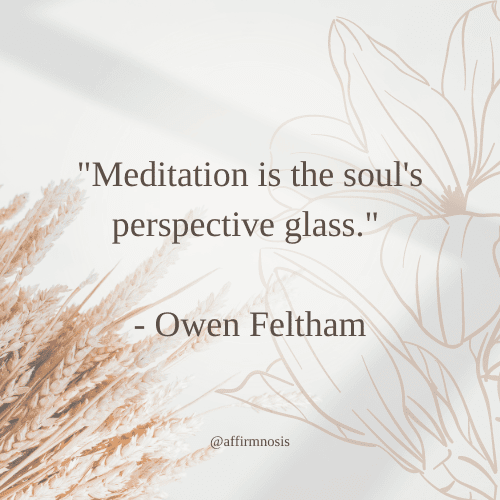Transcendental meditation, commonly referred to as TM, is a form of meditation that involves the use of a mantra, which is repeated silently in the mind during the practice. The technique was developed by Maharishi Mahesh Yogi in the mid-twentieth century and has since become a popular form of meditation worldwide.
Unlike other forms of meditation, which typically involve concentration or visualization techniques, transcendental meditation focuses on reaching a state of pure consciousness. During the practice, individuals aim to achieve a state of deep relaxation while maintaining awareness and clarity of thought.
Brief History of Transcendental Meditation
Maharishi Mahesh Yogi introduced transcendental meditation to the Western world in 1958. He had studied under Guru Dev, a famous Indian saint and spiritual leader who had taught him the technique. Maharishi believed that by practicing transcendental meditation regularly, individuals could tap into their inner potential and improve their overall well-being.
The popularity of TM grew quickly during the 1960s and 1970s when several famous musicians and celebrities publicly endorsed the practice. In addition to its celebrity following, TM gained recognition from scientific research studies that demonstrated its effectiveness in reducing stress and improving overall health.
Today, there are certified TM teachers located worldwide who teach individuals how to practice this form of meditation properly. Despite some controversies surrounding its promotion as an exclusive technique requiring payment for instruction and certification fees by organizations like Maharishi Foundation International or Global Country for World Peace; thousands continue to learn TM every year as part of their personal development or treatment for medical conditions through independent authorized teachers or non-profit organizations like The David Lynch Foundation which offer instruction without charge to those who cannot afford it.
The Life-Changing Power of Transcendental Meditation
One of the most significant benefits of transcendental meditation (TM) is its ability to reduce stress and anxiety. According to a study conducted by the National Institutes of Health, TM practitioners had lower levels of cortisol, a hormone associated with stress, compared to non-meditators.
Reduced Stress and Anxiety
The deep relaxation state achieved during TM allows the body to release built-up stress and tension, leading to feelings of calmness and serenity. Additionally, TM has been shown to lower symptoms of anxiety disorders such as Generalized Anxiety Disorder (GAD) and Post Traumatic Stress Disorder (PTSD).
A 2018 study found that TM helped reduce symptoms in veterans suffering from PTSD. This technique can also alleviate social anxiety disorder by improving cognitive functioning related to self-evaluation.
Improved Focus and Concentration
Another major benefit of TM is its ability to improve focus and concentration. By practicing TM regularly, one can train their mind to stay focused on the present moment rather than getting lost in distractions or thoughts about the past or future. This increased mental clarity results in better decision-making skills and improved work performance.
Numerous studies have shown that regular practice can lead to increased gray matter volume in brain regions associated with attention control such as the prefrontal cortex. This leads not only to better concentration but also helps improve memory recall.
Increased Creativity and Productivity
TM has also been linked with an increase in creativity levels among practitioners. In a study conducted by Harvard Medical School researchers, those who practiced this technique showed an increase in creative problem-solving abilities compared with individuals who did not meditate regularly.
This heightened creativity is likely due to the fact that during meditation, practitioners experience a deeper level of rest than they typically do when sleeping at night; this promotes a state of relaxation and clears the mind while simultaneously stimulating the brain. This, in turn, enhances creativity and problem-solving abilities.
Enhanced Overall Well-being
TM has also been shown to enhance overall well-being both physically and mentally. It is a natural way of improving one’s health without harmful side effects associated with medication or surgery. Studies have shown that TM can help lower blood pressure levels, which is particularly beneficial for individuals with hypertension.
This technique has also been linked to improved immune system functioning, leading to fewer illnesses over time. Moreover, increased levels of happiness and life satisfaction have been reported by those who regularly practice TM.
The deep relaxation achieved during meditation promotes a sense of inner peace, happiness and joy that spills over into other areas of daily life. To experience these benefits first-hand, consider starting a TM practice today.
How to Practice Transcendental Meditation
Transcendental Meditation is a technique that requires proper instruction and guidance from a certified teacher. The best way to find a certified teacher is through the official website of the Transcendental Meditation organization. Their website provides a list of all certified teachers who have undergone rigorous training and have been authorized to teach this technique.
Finding a Certified Teacher
It is important to note that there are many individuals who claim to be TM teachers, but only those who have been trained by the official organization can provide authentic instruction. When choosing a teacher, it is recommended that you read reviews and ask for recommendations from friends or family members who practice TM.
The Process of Initiation
Once you have found a certified teacher, the next step is initiation into the practice of Transcendental Meditation. The initiation process involves four consecutive days of classes with your TM teacher.
During these classes, your teacher will provide detailed instructions on how to practice TM and how it works. You will also be given personalized guidance based on your individual needs.
The initiation process includes one-on-one instruction where you will learn how to properly use a mantra – which is an individual sound or phrase used as an object of focus for meditation; this mantra can only be given by an authorized TM instructor. Your initiation will also include group meditations with other students where you can ask questions about your practice and receive additional guidance from your instructor.
The Daily Practice
After completing the four-day initiation process, you are ready to begin practicing TM on your own at home twice per day for 20 minutes each session. It is recommended that you meditate in the morning before breakfast and again in the evening before dinner. To begin your meditation, sit comfortably with eyes closed, silently repeat your personal mantra without effort or strain.
The mantra will help your mind to settle down and become more peaceful. During the practice, you may experience various thoughts, feelings, and sensations; however, it is important to simply observe them without judgment or analysis.
It is important to maintain a regular routine of daily meditation as part of your overall life routine. It may take several weeks or even months for the full benefits of TM to become apparent in your daily life, but with consistent practice and guidance from a certified teacher, you can learn how to experience deep relaxation and reduce stress levels in everyday life.

Scientific Evidence Supporting Transcendental Meditation
Transcendental Meditation has been the subject of numerous scientific studies over the past several decades. These studies have found that regular practice of TM can have a range of positive effects on both physical and mental health. In this section, we will explore some of the most compelling research on TM.
Studies on brain waves during meditation
A number of studies have examined the effect of TM on brain waves during meditation. One study published in the journal Psychosomatic Medicine found that practicing TM for just 20 minutes led to significant changes in alpha and theta brain wave activity, which are associated with relaxation and heightened creativity, respectively.
Another study published in the American Journal of Physiology-Regulatory, Integrative and Comparative Physiology found that practicing TM increased coherence between different areas of the brain, suggesting greater overall integration and efficiency. This increased coherence was particularly pronounced in regions related to attention and executive function.
In addition to these immediate effects on brain waves, long-term practice of TM has been found to lead to lasting changes in brain structure. A study published in the journal NeuroImage found that regular practitioners had thicker prefrontal cortexes (associated with decision-making and attention) compared to non-practitioners.
Physical health benefits such as lower blood pressure and reduced risk of heart disease
The benefits of TM extend beyond mental health; it has also been linked with numerous physical health benefits. One well-known example is its ability to lower blood pressure.
A review article published in the journal Hypertension, which analyzed data from nine randomized controlled trials involving over 700 participants, concluded that regular practice of TM can lead to significant reductions in both systolic and diastolic blood pressure.
In addition to its effects on blood pressure, there is evidence that TM can also reduce the risk of heart disease. A study published in the journal Circulation found that individuals who practiced TM had a 48% reduction in the risk of heart attack, stroke, and death from any cause compared to a control group over an average follow-up period of 5.4 years.
Overall, these findings suggest that regular practice of TM can have a number of positive effects on both mental and physical health. While more research is needed to fully understand the mechanisms underlying these effects, the growing body of evidence supporting TM’s benefits makes it an attractive option for individuals looking to improve their overall well-being.
Common Misconceptions About Transcendental Meditation
It is Not a Religion or Cult
One of the most common misconceptions about transcendental meditation is that it is a religion or cult. This could not be further from the truth. Transcendental meditation is simply a technique for calming the mind and achieving a state of deep relaxation.
It has no religious affiliation and does not require any specific beliefs or practices. The founder of transcendental meditation, Maharishi Mahesh Yogi, was clear in his teachings that this technique was not meant to replace any existing religious practices but rather to complement them.
Many people of different religions have found great benefit in practicing transcendental meditation alongside their existing religious practices. Furthermore, there are no rituals or ceremonies involved in the practice of transcendental meditation.
There is no hierarchy or structured organization that requires members to follow certain rules or guidelines. It is simply a personal practice for anyone who wishes to improve their well-being.
It Does Not Require Any Specific Beliefs or Lifestyle Changes
Another misconception about transcendental meditation is that it requires one to adopt certain beliefs or make significant lifestyle changes in order to practice it effectively. This could not be farther from the truth either.
Transcendental meditation does not require any specific beliefs whatsoever. One can practice this technique regardless of their race, gender, religion, political views, etc. There are no philosophical concepts that one needs to subscribe to in order to gain benefit from this powerful technique.
Similarly, there are no lifestyle changes required in order to practice transcendental meditation effectively. One does not need to become vegetarian, give up alcohol, wear certain clothing, etc., in order to reap the rewards of this technique.
In fact, one can easily incorporate this simple yet effective exercise into their daily routine without changing anything else about their life at all! Simply find a few minutes each day to sit quietly and meditate, whether it be before or after work, during lunch break or even on the bus ride home.
There are many misconceptions about transcendental meditation that have been perpetuated over the years. However, it is important to remember that this technique is not a religion or cult, nor does it require any specific beliefs or lifestyle changes.
It is simply a powerful tool for achieving deep relaxation and improving overall well-being. Anyone can practice transcendental meditation regardless of their background, beliefs, or lifestyle choices.
Personal Experiences with Transcendental Meditation
One of the most compelling aspects of transcendental meditation is the personal experiences that individuals report after practicing it regularly. Many people claim to experience a profound sense of calm and inner peace, along with increased clarity and focus.
Testimonials from Individuals who have practiced Transcendental Meditation
Some report feeling more connected to their inner selves and a deeper sense of purpose in life. In this section, we will explore some testimonials from individuals who have practiced transcendental meditation. Testimonial 1:
“I’ve been practicing transcendental meditation for over three years now, and it has completely changed my life. I used to struggle with anxiety and stress on a daily basis, but since I started meditating regularly, those feelings have gradually disappeared. I feel much calmer and more centered than I ever have before.
My focus has also improved significantly, which has helped me in my work as well as my personal life.” Testimonial 2: “Before I started practicing transcendental meditation, I felt like something was missing in my life. I was always searching for a deeper meaning or purpose but never quite found it.
After just a few weeks of meditating twice a day, everything clicked into place for me. I felt like I finally understood why I am here on this earth and what my true calling is.” Testimonial 3: “I’ve struggled with insomnia for many years, but since starting to meditate regularly using the TM technique, my sleep has improved dramatically.
Not only do I fall asleep faster now, but I also sleep much more deeply throughout the night. It’s been truly life-changing for me.” Testimonial 4: “I was skeptical at first about trying transcendental meditation because it seemed too good to be true.
But after just one session, I was hooked. The feeling of stillness and peace that I experienced during my first meditation was something I had never felt before.
Now, after practicing regularly for several months, that feeling has become a part of my daily life.” The personal experiences of individuals who practice transcendental meditation are powerful evidence of the benefits this technique can bring to one’s life.
From increased focus and productivity to a deeper sense of inner peace and well-being, the testimonials we have explored demonstrate the transformative power of transcendental meditation. If you are considering trying this technique for yourself, these stories may inspire you to take that first step towards a more fulfilling life.
Scientific Evidence Supporting Transcendental Meditation
Numerous scientific studies have demonstrated the positive effects of transcendental meditation on both physical and mental health. Brain imaging studies have shown that practicing this technique leads to increased activity in areas associated with attention regulation, emotional regulation, and self-awareness. In addition to these changes in brain function, research has also found that practicing transcendental meditation can lead to a significant decrease in symptoms of depression and anxiety.
Personal Experiences with Transcendental Meditation
Countless individuals around the world have reported experiencing profound benefits from practising transcendental meditation. Many people report feeling more grounded, calm and centered after starting their TM practice.
Some even say that they are better able to manage stressors in their work or personal lives since beginning their daily routine. Others report experiencing greater clarity of thought during their time practicing TM which has led them to make some important life decisions they may not otherwise have made without this newfound sense of focus.
A Final Thought
It is clear from both scientific research and personal experiences that practicing transcendental meditation can lead to numerous psychological benefits as well as physical healing outcomes. By taking just a few minutes each day for yourself through this simple technique you can reap huge rewards in terms of your overall health & wellbeing.
The simple act of sitting quietly for 20 minutes or so each day may seem like a small thing, but the benefits that many people experience can be enormous in comparison to other self-care activities. If you’re looking for a way to improve your focus & concentration, become more resilient in the face of stress, or simply improve your mental health and overall well-being, then give transcendental meditation a try – it may be just what you need to start living your best life!
Quotes on the power of meditation and mindfulness that can be applied to the practice of Transcendental Meditation.
- “Meditation is not a means to an end. It is both the means and the end.” – Jiddu Krishnamurti
- “Meditation is the dissolution of thoughts in eternal awareness or pure consciousness without objectification, knowing without thinking, merging finitude in infinity.” – Voltaire
- “Meditation is a way for nourishing and blossoming the divinity within you.” – Amit Ray
- “Meditation is the soul’s perspective glass.” – Owen Feltham
- “Meditation brings wisdom; lack of mediation leaves ignorance. Know well what leads you forward and what holds you back, and choose the path that leads to wisdom.” – Buddha
- “In the midst of movement and chaos, keep stillness inside of you.” – Deepak Chopra
- “Meditation is the tongue of the soul and the language of our spirit.” – Jeremy Taylor
- “Meditation is not to escape from society, but to come back to ourselves and see what is going on. Once there is seeing, there must be acting. With mindfulness, we know what to do and what not to do to help.” – Thich Nhat Hanh
- “Meditation is the ultimate mobile device; you can use it anywhere, anytime, unobtrusively.” – Sharon Salzberg
- “The thing about meditation is: You become more and more you.” – David Lynch
- “Meditation is the discovery that the point of life is always arrived at in the immediate moment.” – Alan Watts
- “Meditation is the action of silence.” – Jiddu Krishnamurti
- “Meditation is the life of the soul: Action, the soul of meditation. And honor the reward of action.” – Francis Quarles
- “Meditation is like giving a hug to ourselves, getting in touch with that awesome reality in us. While meditating we feel a deep sense of intimacy with God, a love that is inexplicable.” – Paramahansa Yogananda
- “Meditation is listening to the Divine within.” – Edgar Cayce
- “Meditation is the secret of all growth in spiritual life and knowledge.” – James Allen
- “Meditation is offering your genuine presence to yourself in every moment.” – Thich Nhat Hanh
- “Meditation is the antidote to all the poisons of your life. It is the nourishment of your authentic nature.” – Bhagwan Shree Rajneesh
- “Meditation is the means through which the Soul dictates and guides the mind for all good.” – Maharishi Mahesh Yogi
- “Meditation is the journey from sound to silence, from movement to stillness, from a limited identity to unlimited space.” – Sri Sri Ravi Shankar
These quotes emphasize the transformative power of meditation, its role in self-discovery, and its potential to bring about a sense of peace and wisdom.
20 affirmations that might be helpful while practicing Transcendental Meditation (TM).
The main aim of TM is to quiet the mind and transcend mental activity, to reach a state of pure awareness or consciousness, and these affirmations can be used to help calm and focus the mind.
- “I am becoming more in tune with the natural rhythm of the universe.”
- “Each breath I take brings me deeper into a state of peace and tranquility.”
- “I am part of the energy and tranquility of the universe.”
- “Every moment, I am becoming more centered and calm.”
- “I let go of my thoughts and worries, and I am at peace.”
- “My mind is calm, my heart is peaceful.”
- “I am floating in a sea of calm and serenity.”
- “I am at peace with the universe and myself.”
- “I am capable of reaching deep states of meditation.”
- “Every day, my meditation practice grows stronger.”
- “I am open to the flow of universal energy and wisdom.”
- “I am releasing all stress and tension as I meditate.”
- “With each breath, I am more present and mindful.”
- “I am cultivating inner peace and harmony.”
- “My meditation practice nourishes my soul.”
- “I am grounded, peaceful, and centered.”
- “As I meditate, I am connecting with my higher self.”
- “With every breath, I am more deeply relaxed.”
- “My mind, body, and spirit are in harmony.”
- “I transcend my thoughts and touch the silence within.”
Please note that the technique of Transcendental Meditation is generally taught through certified TM teachers and involves the use of a personal mantra given to the meditator by the teacher. If you’re interested in learning more, it’s recommended to contact a local Transcendental Meditation center or teacher.




























































